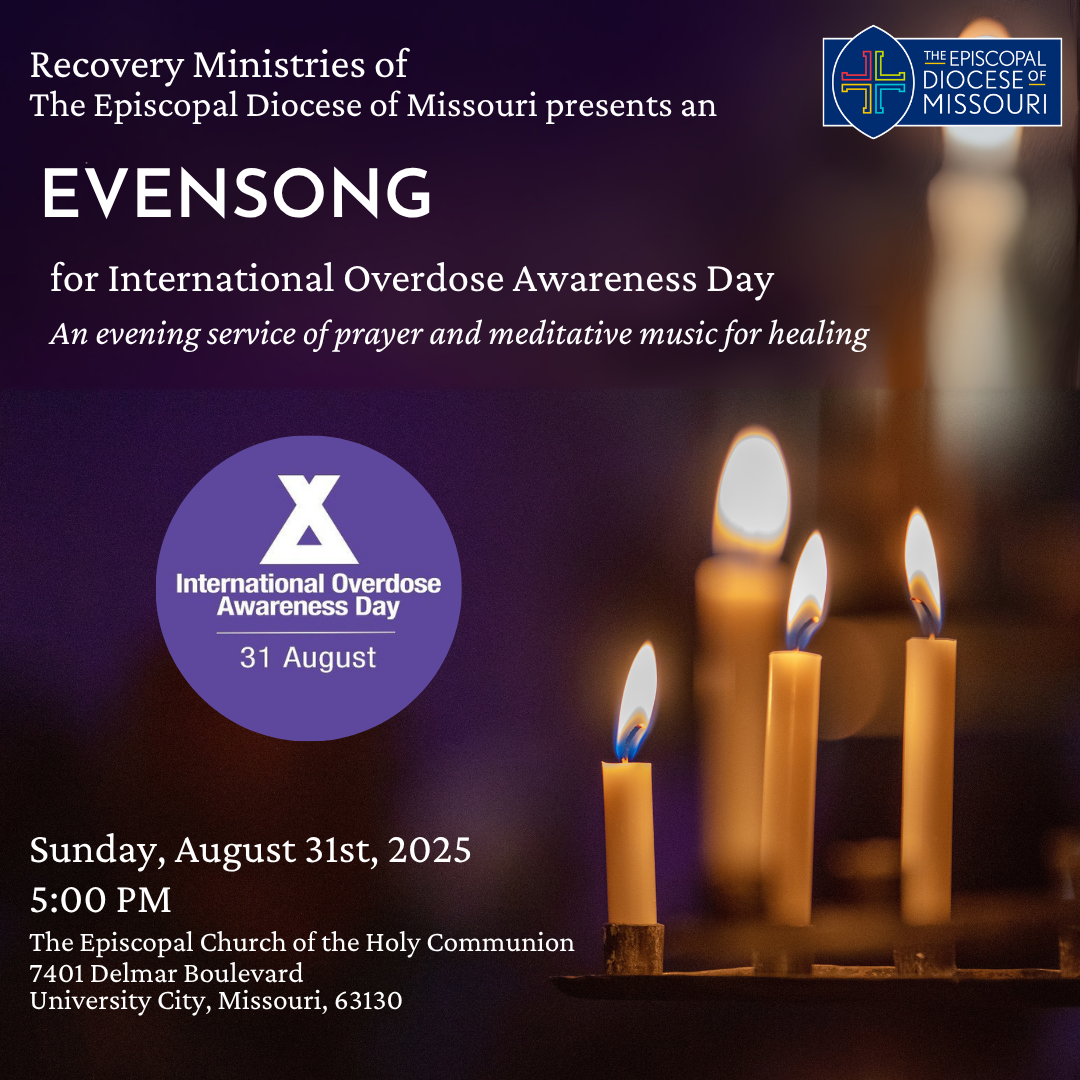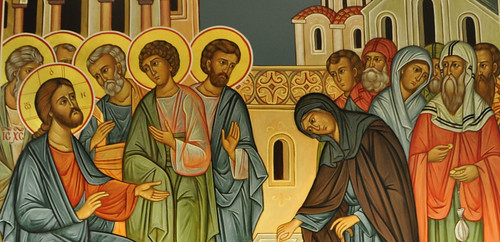- Aug 30, 2025
- 1 min read

Recovery Ministries of
The Episcopal Diocese of Missouri presents an
EVENSONG
for International Overdose Awareness DayAn evening service of prayer and meditative music for healing
Sunday, August 31st, 20255:00 PM
The Episcopal Church of the Holy Communion7401 Delmar BoulevardUniversity City, Missouri, 63130
